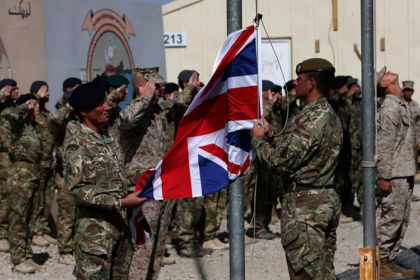RASC News Agency: On the eve of the relocation of Waziristan Pashtons in northern Afghanistan, Mullah Hebatullah issued a decree stating that Tajik and Uzbek commanders within the group are no longer permitted to travel to their hometowns. Mullah Hebatullah, the clandestine leader of the Taliban group, directed the ministries of interior, defense, and intelligence to enforce the restriction on these non-Pashton commanders from traveling to the northern provinces. The three Taliban figures affected by the ban include Qari Salahuddin, an Uzbek-born commander responsible for security in Zabul province; Makhdoom Alem, an Uzbek-born commander responsible for security in Ghazni province; and Qari Fasihiuddin, a Tajik-born head of the army’s staff within the group.
While Mullah Hebatullah’s order does not specify the reason for prohibiting their travel, it declares that until further notice, these commanders are not allowed to journey to northern Afghanistan. Reliable sources within the Taliban group’s Ministry of Defense have informed RASC that the non-Pashton figures are under constant surveillance by the group’s intelligence. They are monitored during their daily meetings with visitors, and their visitors’ identities are being recorded. Moreover, these commanders cannot travel to the northern provinces or their homes in the north without coordination with the group’s leader and other Pashton leaders.
Makhdum Alem, a prominent local Uzbek-born religious leader and commander, was previously arrested by the Taliban group on charges of kidnapping and abduction. He was transferred to Kabul, which sparked widespread protests among the Uzbeks. Despite this, the group has not allowed him to resume his duties in northern Afghanistan and has instead kept him occupied in Ghazni province under constant surveillance. Sources have indicated that the main reason behind the travel ban is the growing discontent among the people in the north regarding the extensive presence and tribal behavior of the Pashton Taliban towards the local population. Those who have been under the command of these Uzbek and Tajik officials for years, fighting on behalf of the Taliban group, now feel betrayed. The Pashton Taliban’s aggressive actions, including the torment and violation of the honor and homes of locals, have caused outrage among the people.
Therefore, the Taliban leadership is deeply concerned about the tribal behavior exhibited by the Pashton Taliban group in the northern regions. They fear that this may cause three influential commanders to break away from the Taliban and side with the local people in order to prevent the Pashton Taliban’s oppressive actions in the north. Reliable sources indicate that these three commanders hold significant influence among the Tajik and Uzbek factions within the Taliban. They have the ability to swiftly rally their own forces against tribal practices, which contradict the Taliban’s policies and principles.
Meanwhile, political analysts are also aware of the travel restrictions imposed on these commanders. These restrictions prevent them from traveling to the northern provinces or their homelands. This appears to be a response by the Pakistani government to the forced expulsion of Pashton migrants and is being coordinated with the Taliban’s plan to Pashtonize the north. The presence of these commanders, particularly among non-Pashton communities in northern Afghanistan, is likely to challenge this process.
These three commanders are considered vital supporters of the Taliban among the Tajik and Uzbek factions in northern Afghanistan. The Taliban, fearing their possible opposition due to their ethnic interactions, have a history of concern regarding such behavior. They previously experienced this from Mullah Mahdi, the sole Hazara Taliban leader.
In the past, Mullah Mahdi, who was appointed as the security commander of Bamiyan province, defied the Taliban’s tribal practices against the people of Bamiyan, especially the Hazaras. This led him to take up arms against the Taliban group, fighting to protect his people’s legitimate demands.
Earlier reports by the RASC News Agency revealed that the Taliban were implementing a plan to systematically eliminate non-Pashton communities from their ranks at all levels of command and take them into custody as part of their tribal projects. Last week, Taliban intelligence dispatched a battalion of one hundred Pashton fighters to apprehend Qari Bahawuddin, the commander of the Tala Wa Barfak district, in the province of Baghlan. This resulted in a confrontation between Taliban members and local residents, including indigenous peoples who disarmed sixty armed Taliban militants alongside the Tajik commander. The remaining insurgents were forced to flee the scene.






